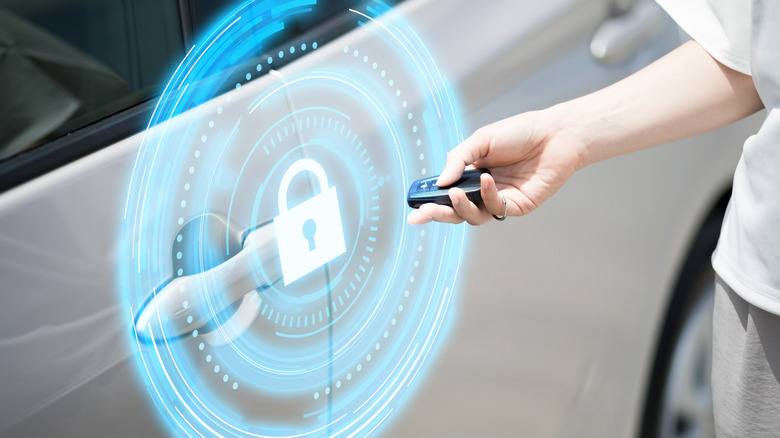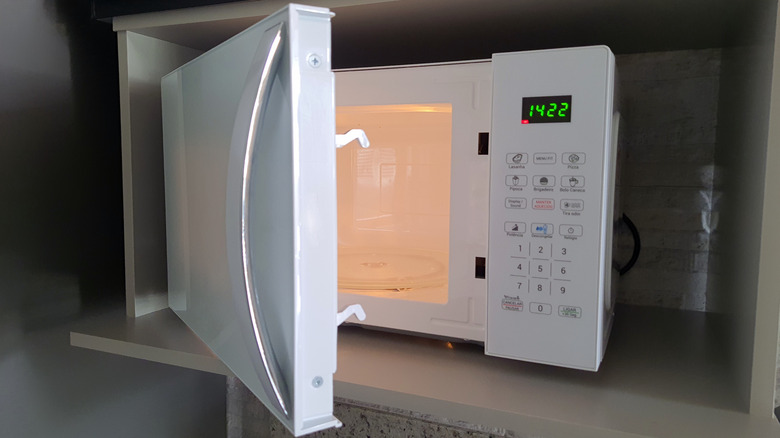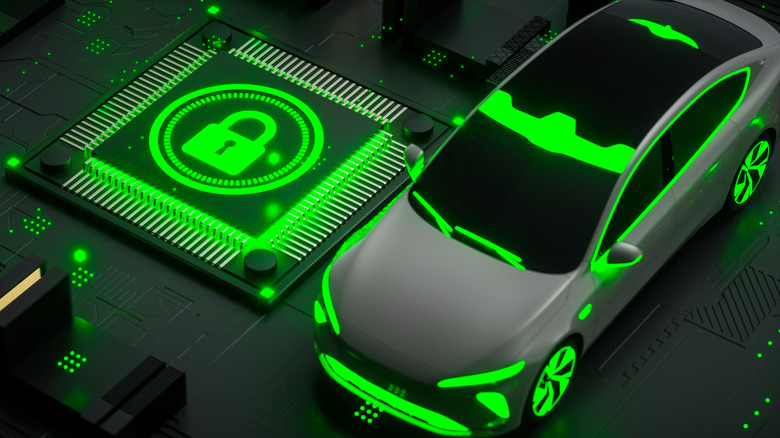This Kitchen Appliance Could Prevent Car Theft – But It Comes At Too High A Risk
We may receive a commission on purchases made from links.
As society continues to undergo its high-tech makeover, your average everyday citizen has, arguably, never been more exposed to any number of attacks from the hordes of high-tech ne'er-do-wells in the world. Thankfully, there are measures folks can take to limit how much access online creepers have to their devices.
While password upgrades, security programs and, in some cases, biometric systems are measures that can help you secure your gear and info, they may not be enough to deny a technologically inclined crook from making off with your automobile — particularly those targeting smart cars with cheap relay attack kits. If you've never heard that term before, a "relay attack" is a method car thieves use to gain access to keyless entry vehicles by essentially hijacking and boosting the signal emitted from your key fob, relaying to a nearby receiver, and thus unlocking the car remotely.
Yes, the signal can be boosted even if the key fob is located inside your house at the time of theft. And yes, such a theft can occur in a matter of seconds. You can, however, limit the possibility of a relay attack by simply placing your key fob inside your microwave when you're not out and about. That's because your microwave is, in essence, a Faraday cage, meaning its enclosed metal construct provides a signal-blocking electromagnetic shield that prevents the digital signature emanating from your key fob from being hijacked or even detected. But, and we cannot stress this enough, you absolutely should not do this.
Why you shouldn't leave your keys in your microwave
On paper, that security measure would seem to be an easy and relatively foolproof way to take a relay attack out of the equation for any car owner with keyless entry. The method absolutely works, too, as your already in-home Faraday box will indeed block your key fob's signal from detection. But if history has taught us anything, it's that there has yet to be a foolproof plan that human fools haven't found a way to foil. To that end, there is one fatal flaw in the old key fob in the microwave car security trick: you absolutely have to remember that your car keys are inside.
It should seem obvious to even the most scientifically averse people, but failing to remove your vehicle's key fob from the microwave before you turn it on at dinner time could prove a catastrophic mistake. It's a mistake that would almost certainly destroy both the microwave and the key fob in a matter of seconds.
Not only will the heat and electricity generated by the microwave damage the battery and electrical elements within the key, but it'll likely damage the microwave as well. Moreover, it's worth remembering that most key fobs are encased in a hard plastic shell. And you had better believe that shell is going to melt quickly when subjected to the heat generated by the microwave.
Other ways to protect your car from relay theft
So what's a mildly paranoid car owner to do to protect themselves against theft via a relay attack? Well, if you insist on going the microwave route, you can always just drop a little sign onto the exterior of the device to remind you there may be a key fob inside. But even in that scenario, mistakes could be made. Thankfully, you can achieve the same Faraday effect by picking up a special Faraday bag designed specifically for smaller devices like automobile key fobs. Such bags are available through Amazon for as little as $9.99.
Just FYI — you can upgrade to a fireproof/waterproof version of the Faraday bag that'll also secure your mobile device for just $14.99 if you're interested. If, however, you're not inclined to invest even those modest funds into your automotive security, there are other steps you can take to help prevent exposure to relay attacks. You could try placing your key fob inside a different appliance like the freezer, which should sufficiently disrupt your key fob's signal, even as the prolonged exposure to cold could do damage of its own.
Apart from that, even keeping your keys stowed away in an upstairs room and away from windows should make it harder for that signal to be detected from street level. If you want to get old school with your car's security, a steering wheel lock will make it harder for a thief to drive away if they do get inside your car. Heck, in a pinch, even aluminum foil might help.


